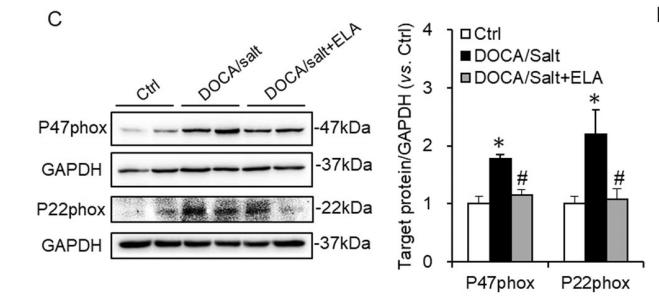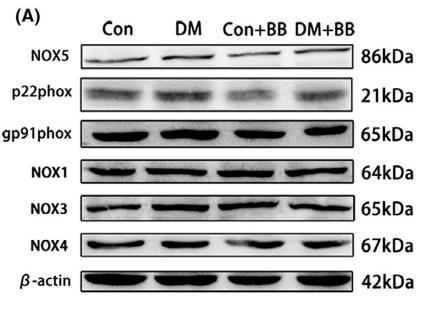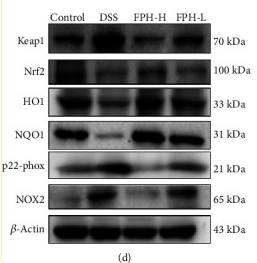CYBA Antibody - #DF10099
| Product: | CYBA Antibody |
| Catalog: | DF10099 |
| Description: | Rabbit polyclonal antibody to CYBA |
| Application: | WB IHC IF/ICC |
| Cited expt.: | WB |
| Reactivity: | Human, Mouse, Rat |
| Prediction: | Pig, Zebrafish, Bovine, Horse, Rabbit, Dog, Chicken, Xenopus |
| Mol.Wt.: | 21 kDa; 21kD(Calculated). |
| Uniprot: | P13498 |
| RRID: | AB_2840679 |
Related Downloads
Protocols
Product Info
*The optimal dilutions should be determined by the end user. For optimal experimental results, antibody reuse is not recommended.
*Tips:
WB: For western blot detection of denatured protein samples. IHC: For immunohistochemical detection of paraffin sections (IHC-p) or frozen sections (IHC-f) of tissue samples. IF/ICC: For immunofluorescence detection of cell samples. ELISA(peptide): For ELISA detection of antigenic peptide.
Cite Format: Affinity Biosciences Cat# DF10099, RRID:AB_2840679.
Fold/Unfold
CYBA; Cytochrome b 245 alpha polypeptide; Cytochrome b 245 light chain; Cytochrome b alpha polypeptide; Cytochrome b(558) alpha chain; Cytochrome b(558) alpha subunit; Cytochrome b558 subunit alpha; Flavocytochrome b 558 alpha polypeptide; Neutrophil cytochrome b 22 kDa polypeptide; p22 phagocyte B-cytochrome; p22-phox; p22phox; Superoxide-generating NADPH oxidase light chain subunit;
Immunogens
A synthesized peptide derived from human CYBA, corresponding to a region within N-terminal amino acids.
- P13498 CY24A_HUMAN:
- Protein BLAST With
- NCBI/
- ExPASy/
- Uniprot
MGQIEWAMWANEQALASGLILITGGIVATAGRFTQWYFGAYSIVAGVFVCLLEYPRGKRKKGSTMERWGQKYMTAVVKLFGPFTRNYYVRAVLHLLLSVPAGFLLATILGTACLAIASGIYLLAAVRGEQWTPIEPKPRERPQIGGTIKQPPSNPPPRPPAEARKKPSEEEAAVAAGGPPGGPQVNPIPVTDEVV
Predictions
Score>80(red) has high confidence and is suggested to be used for WB detection. *The prediction model is mainly based on the alignment of immunogen sequences, the results are for reference only, not as the basis of quality assurance.
High(score>80) Medium(80>score>50) Low(score<50) No confidence
Research Backgrounds
Critical component of the membrane-bound oxidase of phagocytes that generates superoxide. Associates with NOX3 to form a functional NADPH oxidase constitutively generating superoxide.
The heme prosthetic group could be coordinated with residues of the light chain, the heavy chain, or both, and it is possible that more than one heme is present per cytochrome b-245.
Phosphorylation at Thr-147 enhances NADPH oxidase activity by promoting p47phox binding.
Ubiquitinated at Lys-149 likely by RNF145.
Cell membrane.
Note: As unassembled monomer may localize to the endoplasmic reticulum.
Belongs to the p22phox family.
Research Fields
· Cellular Processes > Transport and catabolism > Phagosome. (View pathway)
· Human Diseases > Infectious diseases: Parasitic > Leishmaniasis.
· Organismal Systems > Development > Osteoclast differentiation. (View pathway)
· Organismal Systems > Immune system > NOD-like receptor signaling pathway. (View pathway)
· Organismal Systems > Immune system > Leukocyte transendothelial migration. (View pathway)
References
Application: WB Species: mouse Sample: renal cortex
Application: WB Species: rat Sample: testis
Application: WB Species: Mouse Sample:
Restrictive clause
Affinity Biosciences tests all products strictly. Citations are provided as a resource for additional applications that have not been validated by Affinity Biosciences. Please choose the appropriate format for each application and consult Materials and Methods sections for additional details about the use of any product in these publications.
For Research Use Only.
Not for use in diagnostic or therapeutic procedures. Not for resale. Not for distribution without written consent. Affinity Biosciences will not be held responsible for patent infringement or other violations that may occur with the use of our products. Affinity Biosciences, Affinity Biosciences Logo and all other trademarks are the property of Affinity Biosciences LTD.





